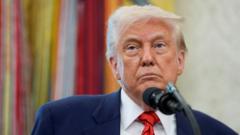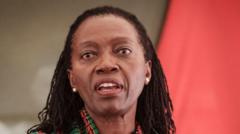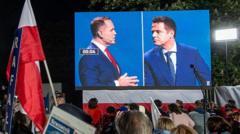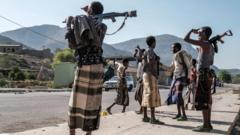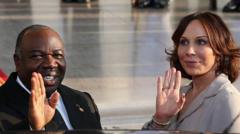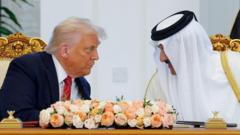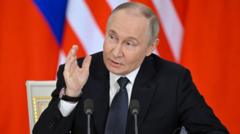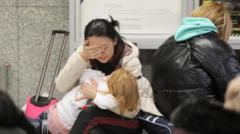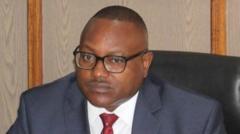As Romania gears up for its presidential runoff, the country finds itself at a pivotal moment that could redefine its political affiliations and stance within Europe.
Romania at a Crossroads: Election Results Could Shift Political Landscape

Romania at a Crossroads: Election Results Could Shift Political Landscape
Upcoming Romanian election may impact the country's ties with the EU and NATO.
In a surprising twist, Romania's election process has returned to the forefront after previous disruptions, including allegations of foreign interference. The recent elections saw far-right candidate George Simion emerge victorious in the initial round, marking a significant change in the political climate. Facing off against the liberal mayor of Bucharest, Nicusor Dan, the runoff is being closely monitored for its potential implications on Romania's position within the European Union and NATO.
Both candidates cast their ballots, with Simion advocating for a nationalist agenda that prioritizes Romanian interests and Dan calling for closer collaboration with European counterparts. A distinct divide has emerged in the electorate, with the former football casual's message resonating particularly in poorer regions like Teleorman County, where he garnered 57%.
While some voters express enthusiasm for Simion's promises of national renewal, concerns grow among business owners about what his potential victory could mean for Romania's international reputation. These apprehensions are amplified by Simion's history of edgy provocations and his controversial views, including his stance on Russia and assistance to Ukraine.
Conversely, those favoring Dan underscore his academic achievements and political experience as necessary for steering Romania safely through challenging times ahead.
The potential for Simion to form a government alongside controversial figures like Calin Georgescu adds further uncertainty, with experts predicting political instability if he were to win. As election day approaches, the stakes have never been higher for Romania's future in Europe.
The country grapples with balancing national pride against the stability and benefits that come from European integration. The next few days promise to be critical in shaping Romania's political trajectory and its relationship with the broader European community.
Both candidates cast their ballots, with Simion advocating for a nationalist agenda that prioritizes Romanian interests and Dan calling for closer collaboration with European counterparts. A distinct divide has emerged in the electorate, with the former football casual's message resonating particularly in poorer regions like Teleorman County, where he garnered 57%.
While some voters express enthusiasm for Simion's promises of national renewal, concerns grow among business owners about what his potential victory could mean for Romania's international reputation. These apprehensions are amplified by Simion's history of edgy provocations and his controversial views, including his stance on Russia and assistance to Ukraine.
Conversely, those favoring Dan underscore his academic achievements and political experience as necessary for steering Romania safely through challenging times ahead.
The potential for Simion to form a government alongside controversial figures like Calin Georgescu adds further uncertainty, with experts predicting political instability if he were to win. As election day approaches, the stakes have never been higher for Romania's future in Europe.
The country grapples with balancing national pride against the stability and benefits that come from European integration. The next few days promise to be critical in shaping Romania's political trajectory and its relationship with the broader European community.

